Eco-Fashion Forward
At LUNAR, we believe in the power of natural fabrics to create a stylish, eco-friendly wardrobe. Our collection features organic cotton, rayon, linen, and tencel, each chosen for its unique benefits and minimal environmental impact. In this guide, we'll explore these incredible fabrics, detailing their advantages and how they contribute to a greener planet while offering unparalleled comfort and quality.
Discover why choosing natural fabrics is not only good for the earth but also enhances your personal well-being.
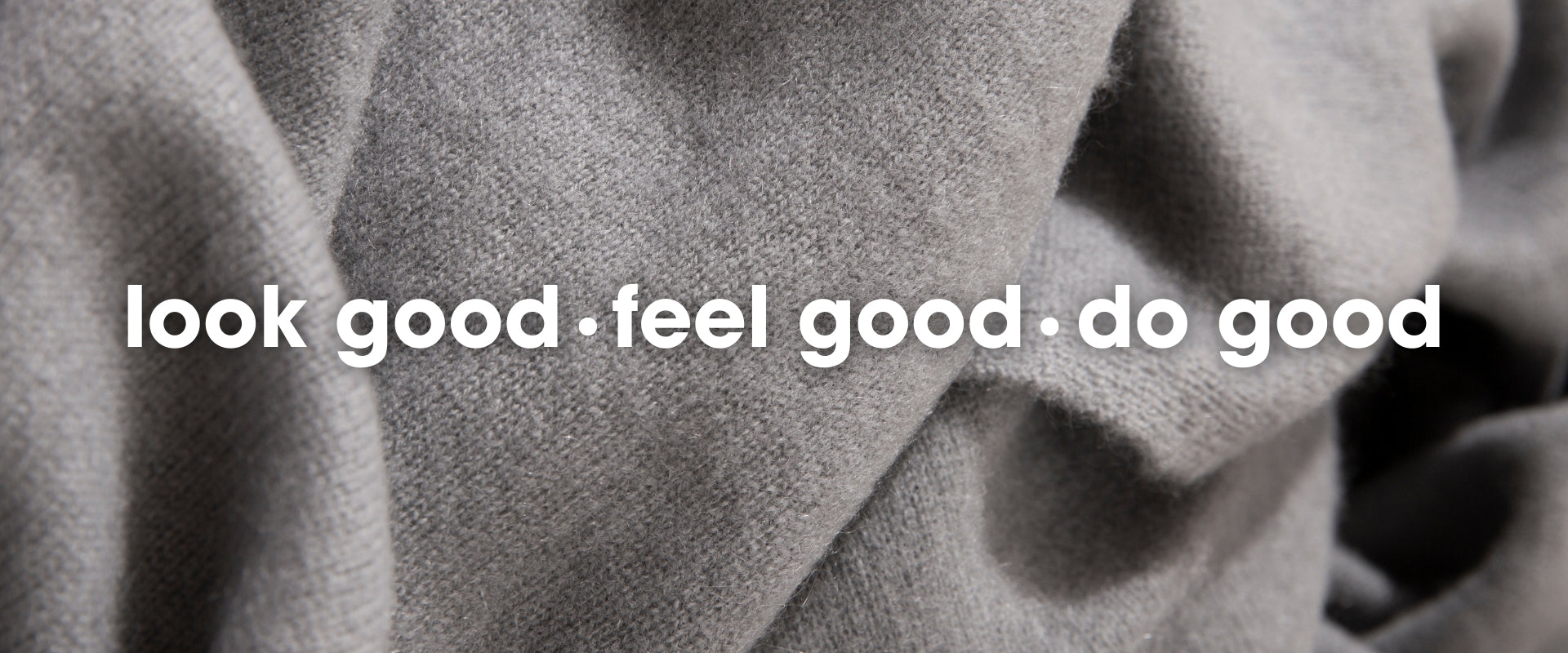
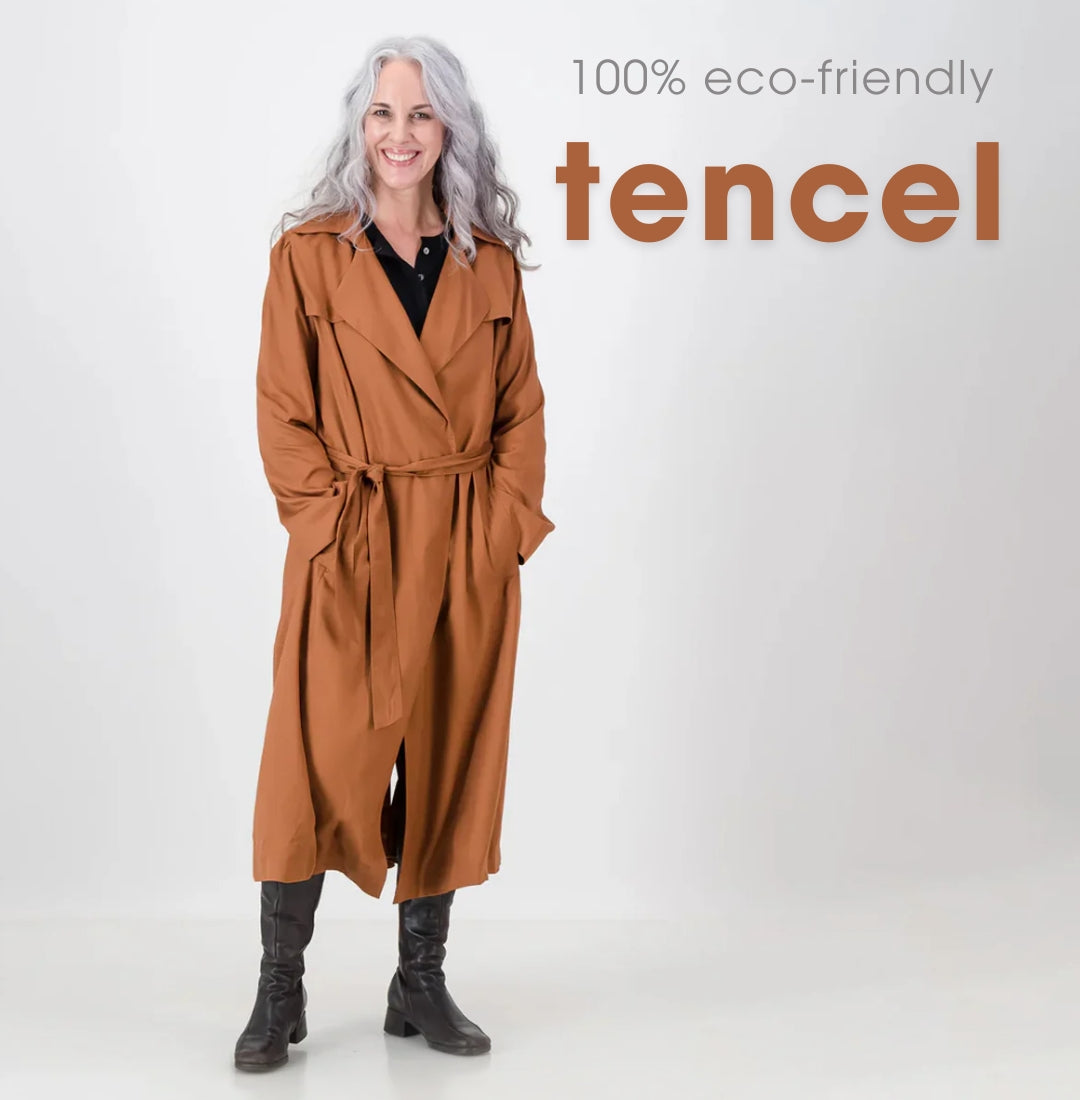
1. Tencel
Tencel is a revolutionary fabric made from sustainably sourced wood pulp, primarily from eucalyptus trees. Known for its silky smooth texture and breathability, Tencel is incredibly gentle on the skin, making it a perfect choice for comfort and well-being. Its production process is eco-friendly, using less water and energy compared to traditional fabrics, and it is fully biodegradable. *TENCEL (2023)
Additionally, Tencel's moisture-wicking properties keep you cool and dry, enhancing your comfort. Choosing Tencel means supporting a sustainable, low-impact textile that benefits both you and the planet.

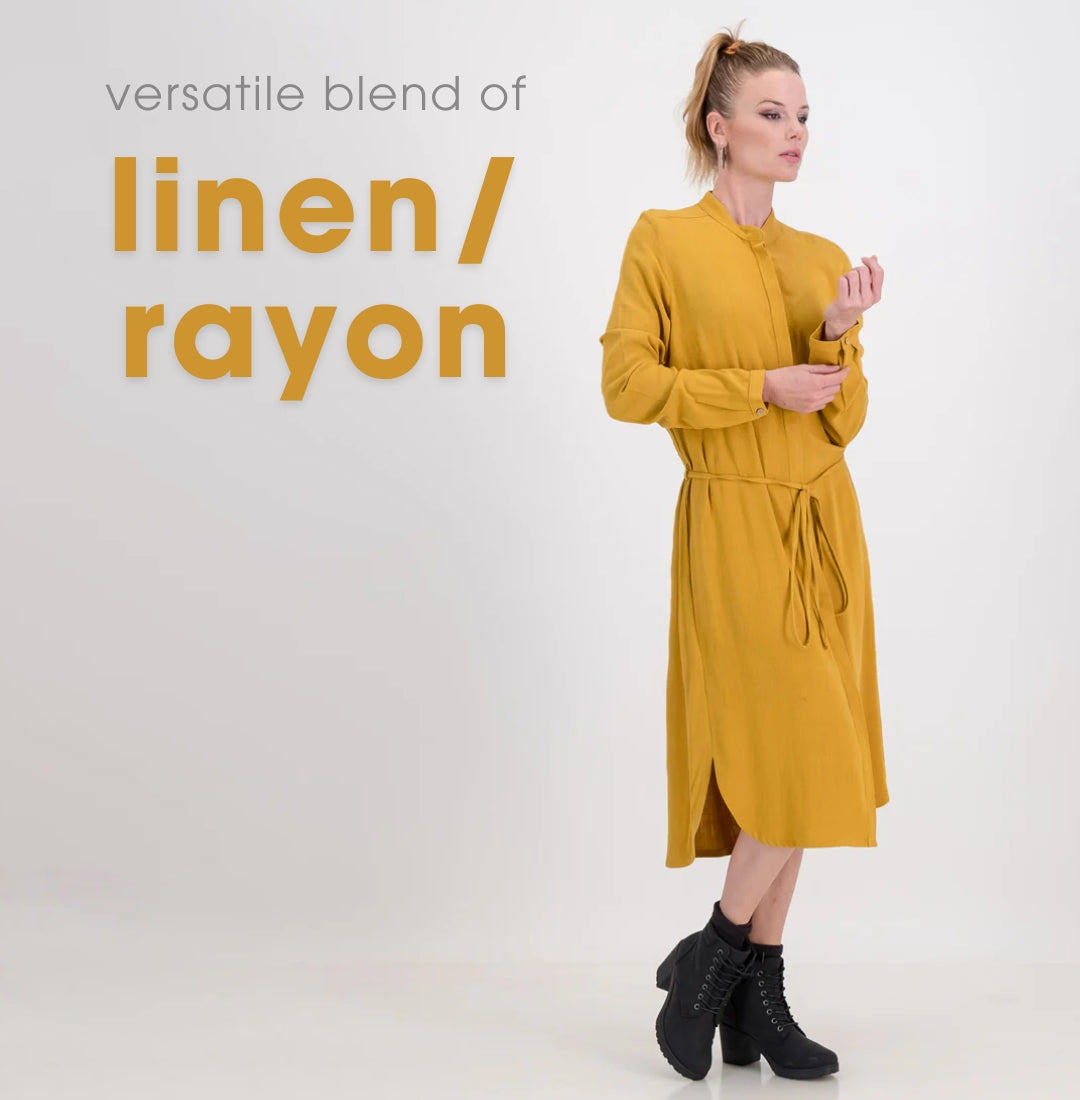
2. Linen/Rayon
The linen/rayon blend melds the textured charm of linen with the smooth drape of rayon, creating a fabric that is both refreshing and luxurious. This blend is celebrated for its unique combination of linen's airy freshness and rayon's silk-like softness and flow, offering the best of both worlds. Its eco-friendly nature and versatile appeal make it a perfect choice for stylish, sustainable fashion. *Zelouf Fabrics (2023)
Additionally, linen is naturally biodegradable and requires fewer pesticides and fertilizers to grow, while rayon is derived from renewable wood pulp. Together, they form a low-impact fabric that is gentle on your skin and kind to the planet.
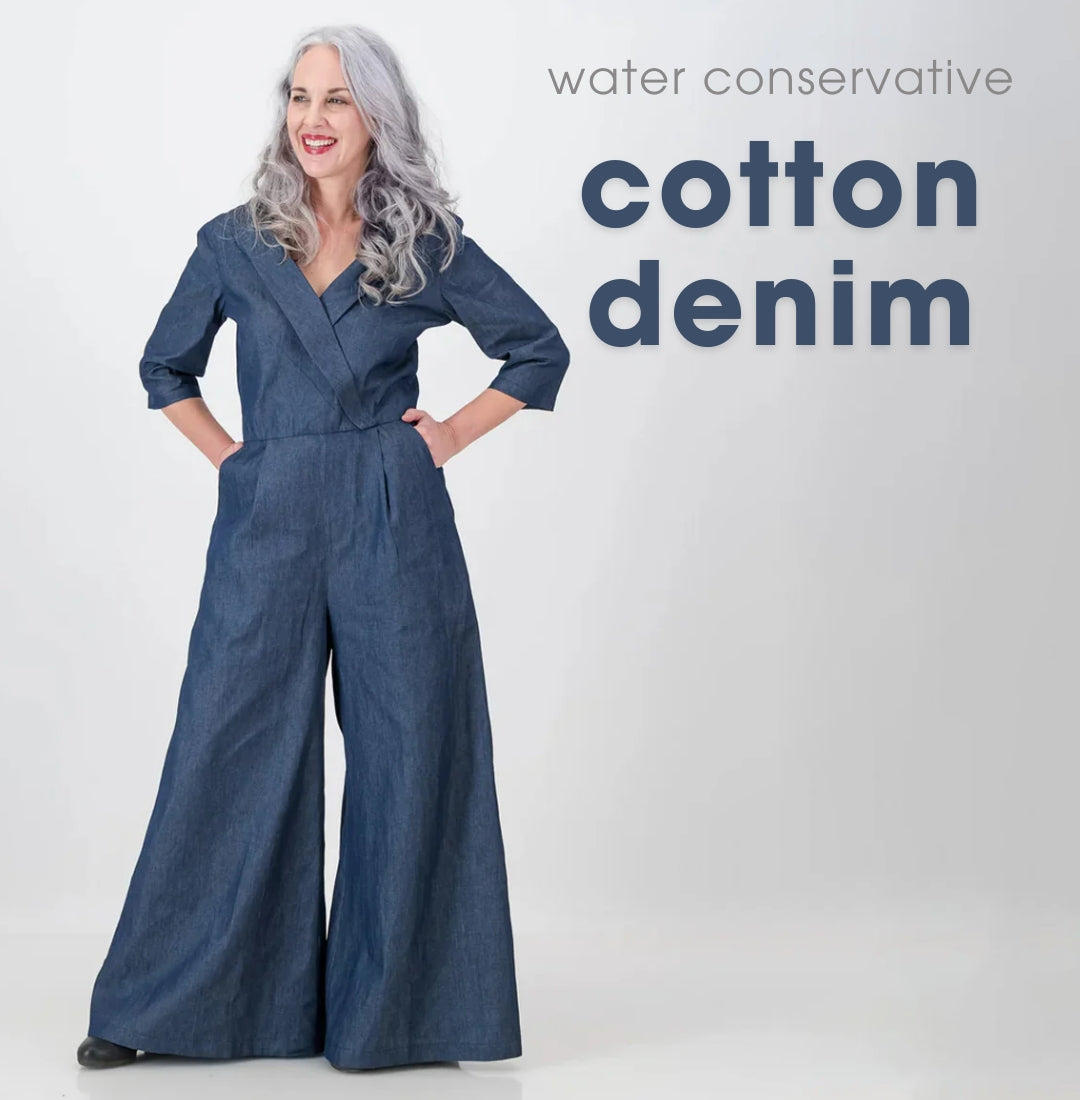
3. Cotton Denim
Cotton denim, particularly when produced with eco-friendly washing methods, offers significant benefits over conventional denim. Traditional denim production often involves harmful pesticides and excessive water use, which pose environmental and health risks. Sustainable cotton denim minimizes these impacts by using organic cotton and innovative, eco-friendly washing techniques. *Play It Green (2023)
These methods reduce the use of toxic chemicals and save water, making the production process more environmentally friendly. This not only protects the planet but also ensures that the final product is safer for consumers, free from residues that can cause skin irritations.
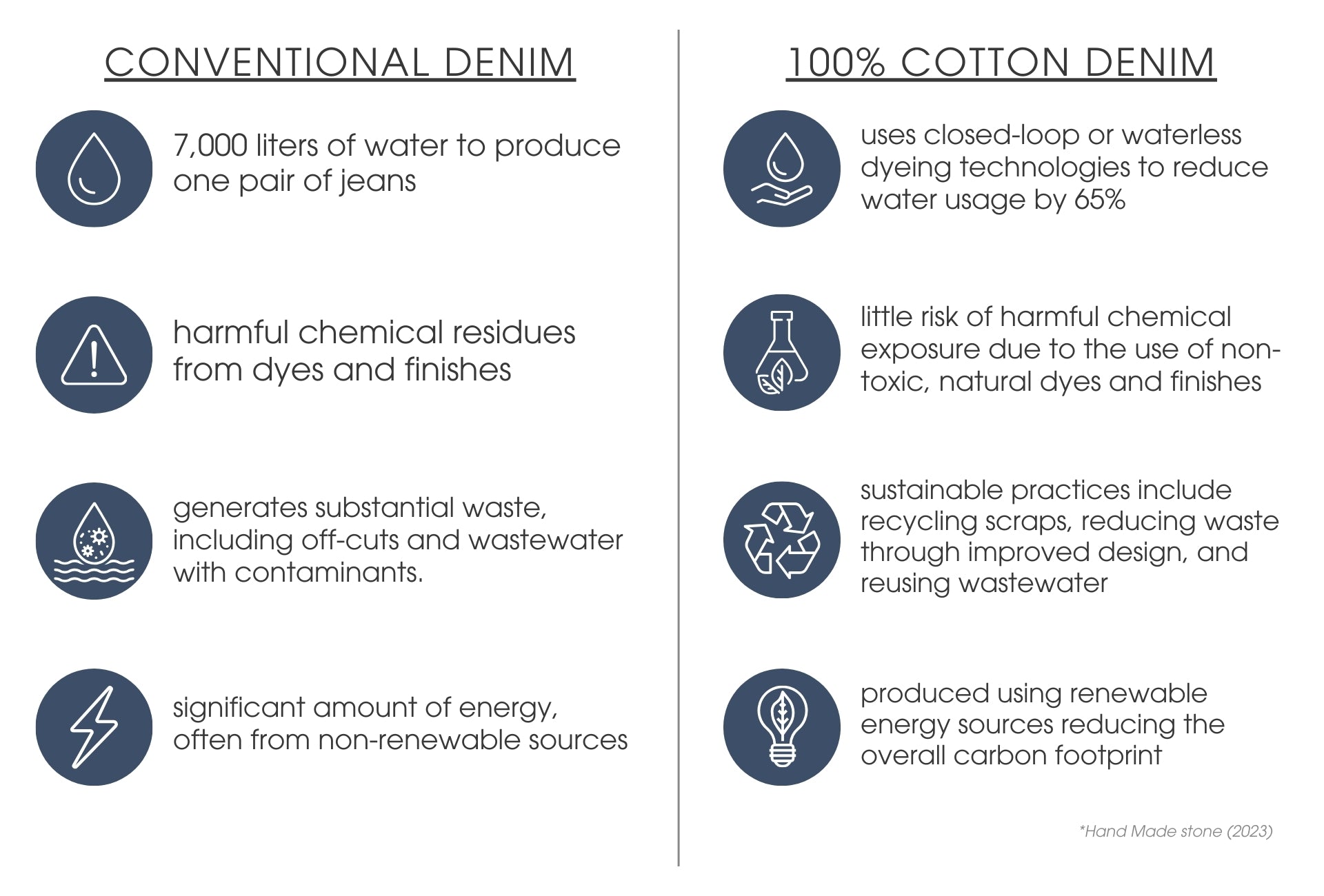
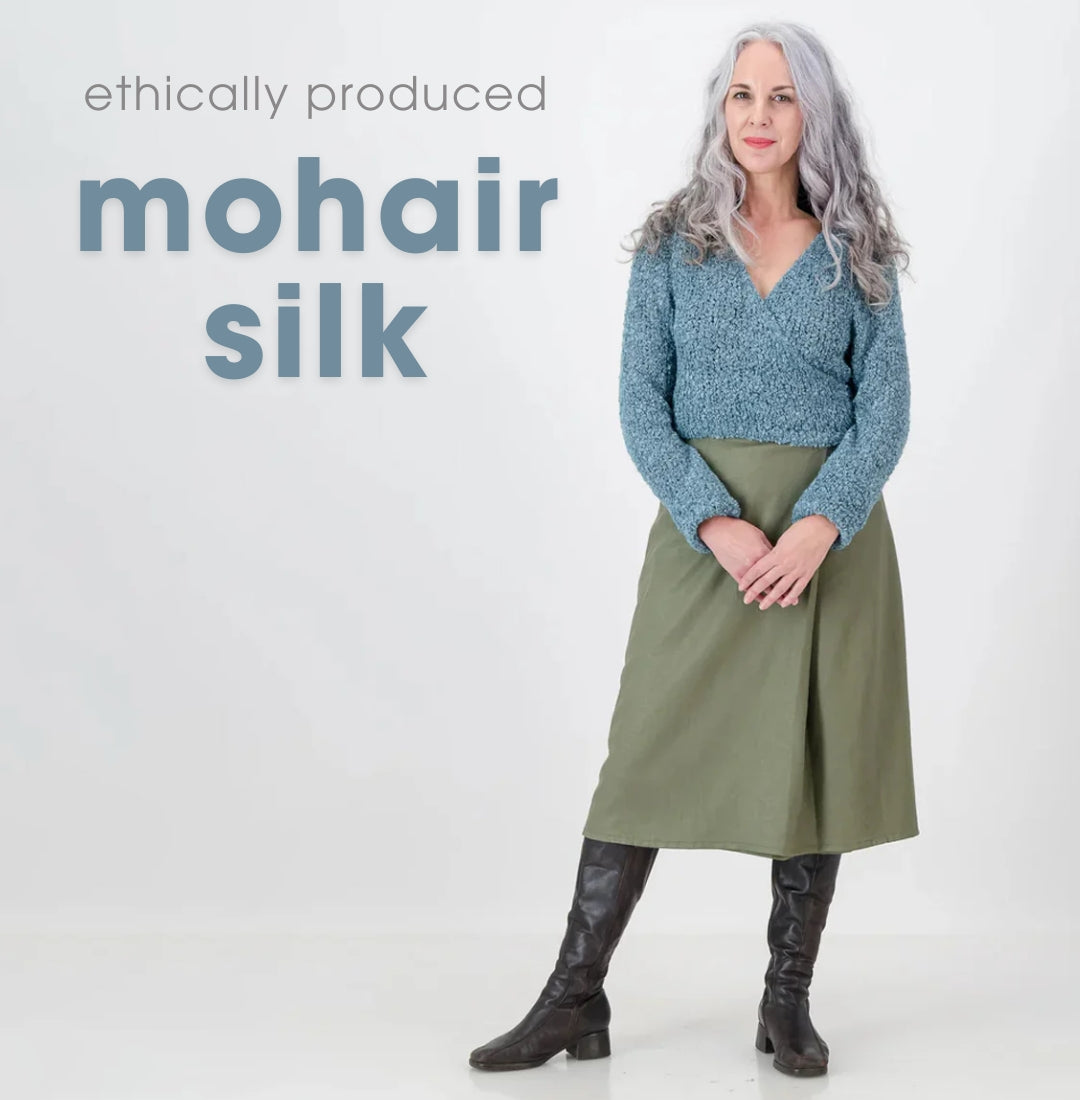
4. Mohair Silk
Mohair is a luxurious fiber made from the hair of the Angora goat, known for its silky texture and exceptional durability. Ethically produced mohair silk from South Africa, particularly through initiatives by the Cape Wools SA Organisation, highlights a commitment to sustainable and humane practices.
The Cape Wools SA Organisation ensures that mohair is sourced from farms adhering to high animal welfare standards, where goats are treated with care and respect. These farms use eco-friendly practices that minimize environmental impact, such as rotational grazing to preserve soil health and reduce overgrazing. By prioritizing both ethical treatment of animals and sustainable farming methods, this mohair silk represents a conscientious choice for consumers seeking high-quality, eco-friendly textiles. *Cape Wools SA (2024)
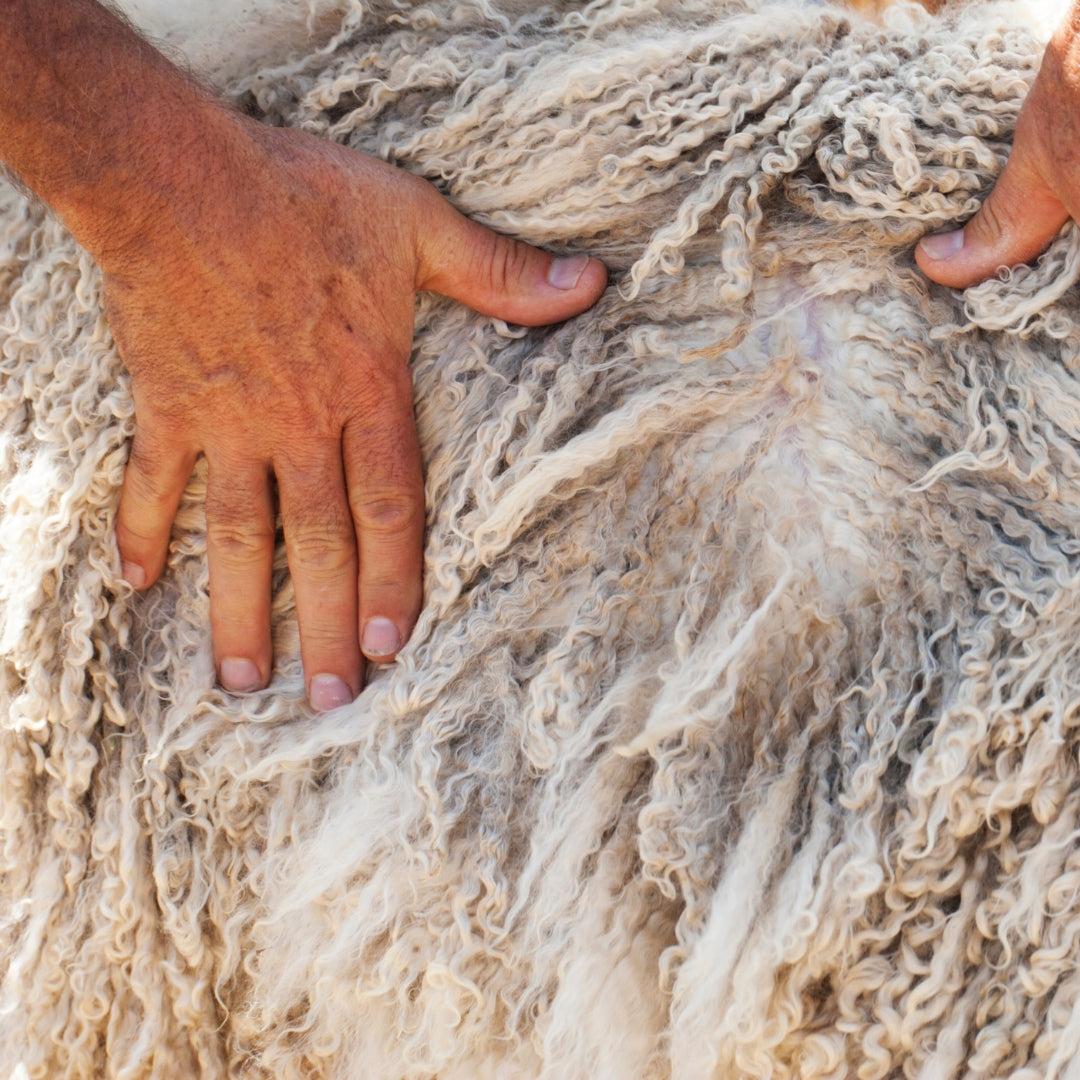
By becoming more in-tune to what we wear down to the thread, we are able to make more intuitive shopping decisions for the earth and our well-being.
